
Psychosocial Disability


Psychosocial Disability


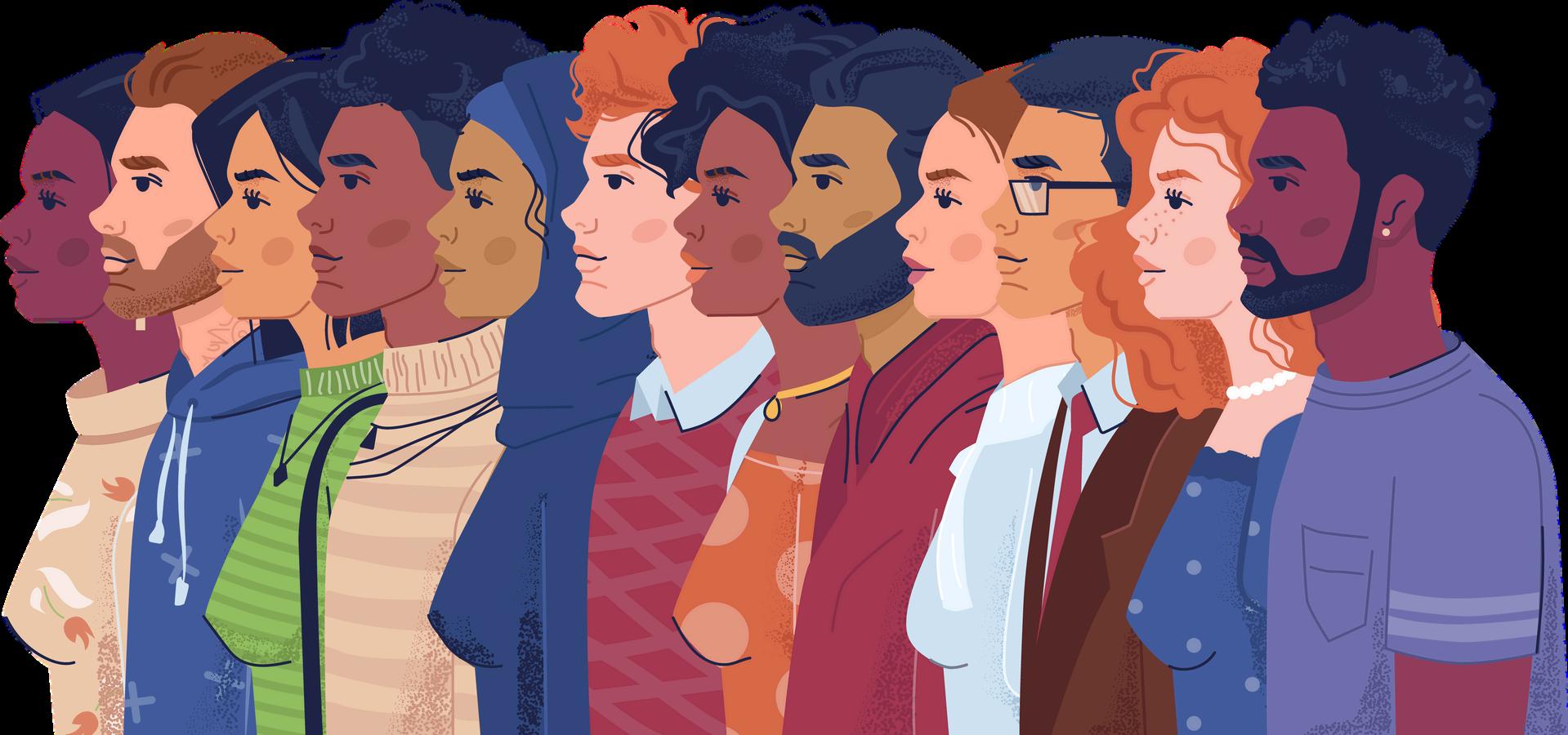
July marks Psychosocial Disability Awareness Month [PDAM].
This year, the SA Federation for Mental Health is promoting the theme: "It's the hour to make our youth empowered”, focusing on the state of youth mental health in South Africa, and arguing the need for increased investment to ensure our young people have adequate access to quality and sufficient mental health services, and are thus allowed to feel well, thrive and achieve.
We hope that this year’s PDAM campaign will ignite the necessary momentum for the government to invest in youth mental health in a meaningful and sufficient manner.
Our youth are our future, let’s start acting on it!





Without proper treatment and community support, young people dealing with mental health struggles or living with mental health conditions could go on to develop a temporary or long-term psychosocial disability.



Source: The Child Gauge 2021/2022

The past ten years have seen youth in South Africa facing persistent economic and social challenges, including:
Unemployment
Rising cost of living
Safety concerns
A lack of opportunities
Poverty
Violence
Limited access to quality education
African youth
make up 33.1% of the population, making them a crucial demographic.
Whilst we recognise that the South African definition of youth is between the ages of 15 and 34 years old, for this campaign, we will be focusing on youth/young people up until the age of 25 years old.




A 2016 study, focused on mental health in young people in South Africa, showed that a high number of youth were living with common mental disorders, including depression (41%), anxiety (16%), and posttraumatic stress disorder.
Up to 60% of South African children and youth felt that they required mental health support during the preceding year (UNICEF U-Poll 2023).
Only 63% of respondents who needed support actively sought it; the primary reason for not getting help was not knowing where to go (UNICEF U-POLL 2023).
In South Africa, suicide is the 2 leading cause of death among people aged 15 to 19 years old.
Most youth living with mental health conditions do not receive the mental health care that they need, a phenomenon known as the ‘treatment gap’
According to the 2021/2022 Child Gauge, the "treatment gap" for children and adolescents in South Africa is approximately 90%.

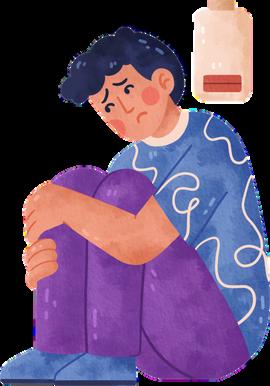




It is reported that there are only fifteen child and adolescent psychiatrists currently working in the public healthcare system across South Africa, and the majority of communities across the country find themselves without mental health services, specifically for youth, meaning that many young people are not receiving youth-specific care.


Source: The Child Gauge 2021/2022

By not investing in young people’s health (including mental health), increased economic costs will plague societies and youth themselves could face grim consequences, such as:
Limited access to employment opportunities
Reduced education prospects
Negative impacts on social relationships
Increased chances of being affected by criminal activity
Mental health problems experienced as a young person can increase the risk of developing a mental health condition as an adult.
Youth mental health is an important issue, and insufficient investment can lead to long-term consequences that could impact the youth’s future contributions to our country.


Despite the existence of South Africa’s National Mental Health Policy Framework (2023-2030), as well as the Child and Adolescent Mental Health Policy, we continue to see youth mental health services in the country being under-resourced.
Both the World Health Organisation and UNICEF advise investing meaningfully in promotion and prevention programmes and interventions aimed at youth. Promotion and prevention interventions for mental health aim to strengthen a person’s ability to: Manage their emotions
Build resilience
Address root causes for risk-taking behaviours
Promote supporting networks and social environments
There is ample evidence that shows that investing in youth mental health can lead to notable economic and social benefits in the long term.

Research has shown that mental health programmes focused on promotion and prevention are effective in improving overall health amongst youth. Prevention and promotion initiatives are crucial as they:
Empower people: promotive and preventative mental health interventions equip youth and their families with lifelong skills to manage their mental health and support others. Foster a supportive, nurturing, and caring environment, which includes actions to improve the quality of environments in homes, schools, communities, and online.
Reduce stigma: prevention and promotion help normalise conversations around mental health.
Are cost-effective: investing in prevention and promoting mental health is more cost-effective than treating mental health conditions.
Have a population-level impact: widespread prevention and promotion initiatives can improve mental health outcomes across entire communities.



Grassroot Soccer SA is a community-based organisation that leverages the power of soccer to equip young people with the life-saving information, services, and mentorship they need to live healthier lives.
Their programmes equip young people with the tools to tackle the most critical and interrelated health challenges facing them today, including mental health.
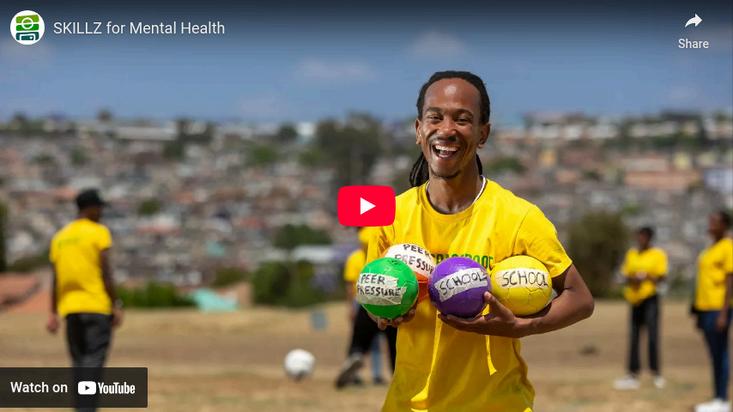


Waves for Change is a community- and evidencebased, youth-friendly, preventative mental health organisation that provides surf therapy to young people (9-16 years) across five beach sites in the Western and Eastern Cape provinces of South Africa.
Their programmes work with youth who have been exposed to toxic stress, as well as neurodiverse children living in under-resourced communities, to help them gain coping skills to manage stressful events in their homes and communities.
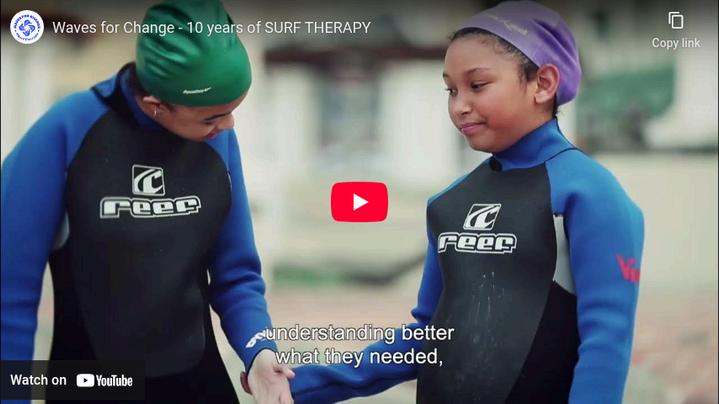


The SAFMH National Mental Health Youth Advocacy and Advisory Forum has a current membership of 18 youth (aged 19-25 years) from four provinces across South Africa (the Western Cape, Gauteng, Kwa-Zulu Natal and NorthWest). The Forum aims to empower young mental health advocates to guide national mental health advocacy and awareness work, while enhancing their voices, advocacy skills, capacity, and mental health knowledge.
Youth are under-represented in South Africa’s mental health policy spaces, and the Forum is a vital platform for advocacy and empowerment.
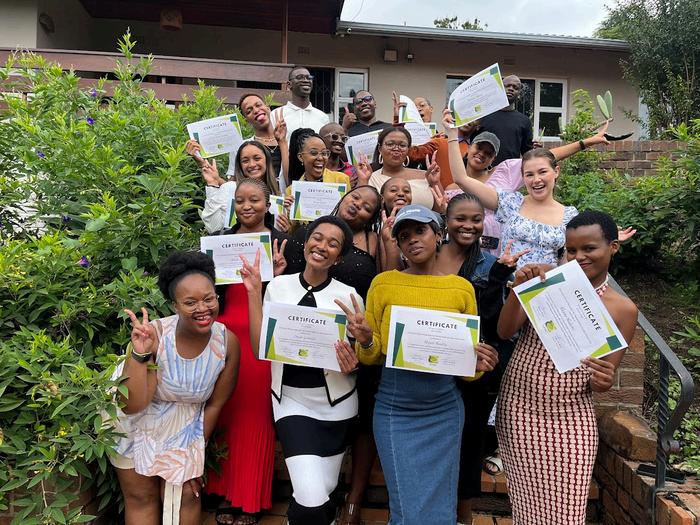

This PDAM, we call on the South African government to:
Uphold their commitment of decentralising and integrating mental health into general health services, mainly at the primary healthcare level. We believe that a community-based model of mental health care would promote more equitable access to health care, which is crucial in South Africa, given that most communities do not have access to specialist care, including youth with mental health conditions.
Address the "treatment gap" by establishing and deploying multidisciplinary mental health teams that actively also focus on youth mental health in each district across the country.
Institute an increased ring-fenced budget for mental health, with a large proportion being invested in community-based mental health care. Sufficient funding should also be directed to promotion and prevention interventions aimed at youth.
Put youth at the centre of any and all mental health initiatives that involve them, ensuring that they are part of the policymaking process, and that they are invited into decision-making spaces as standard practice.
SAFMH believes that now is the time to meaningfully invest in youth mental health in the country.


